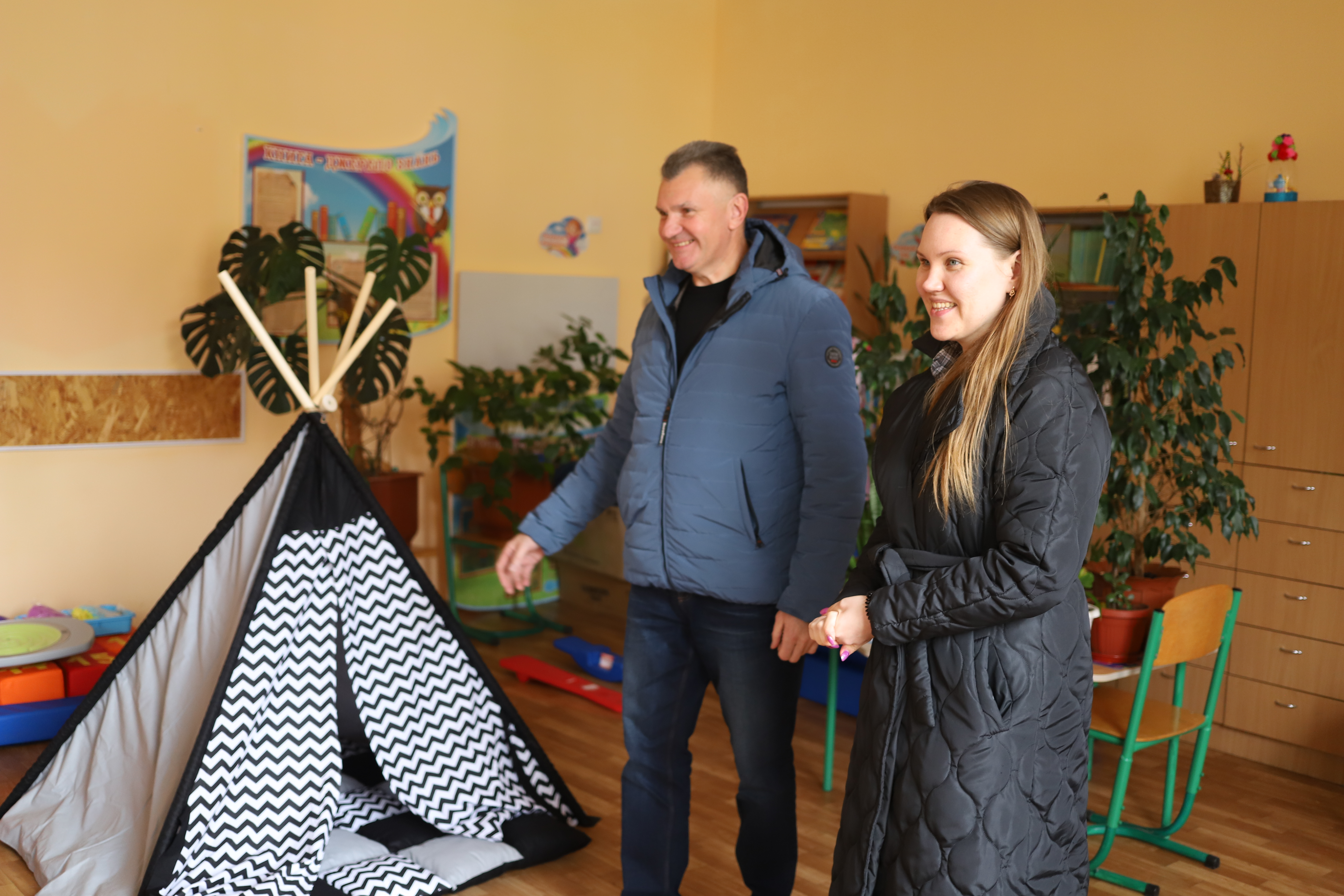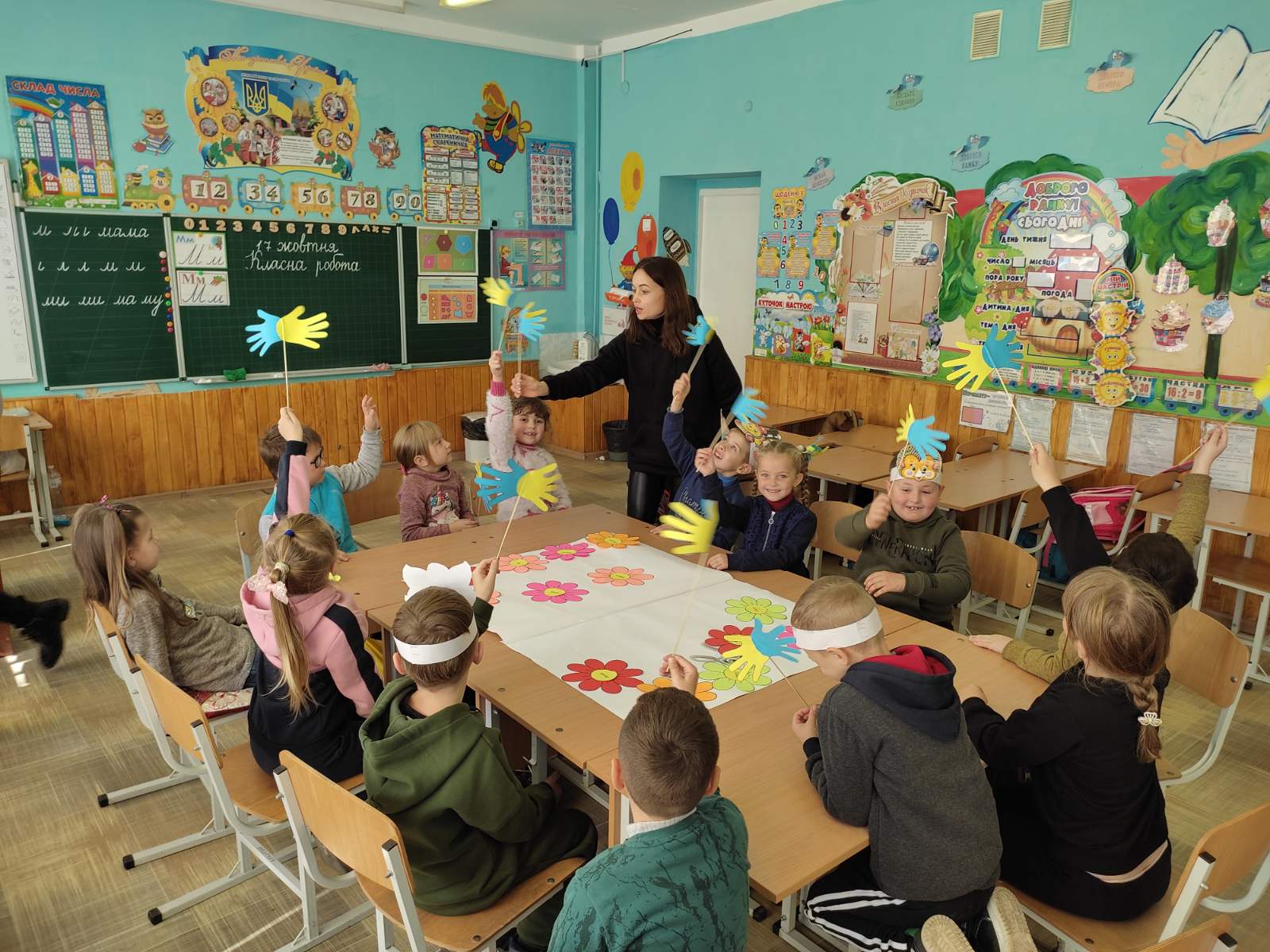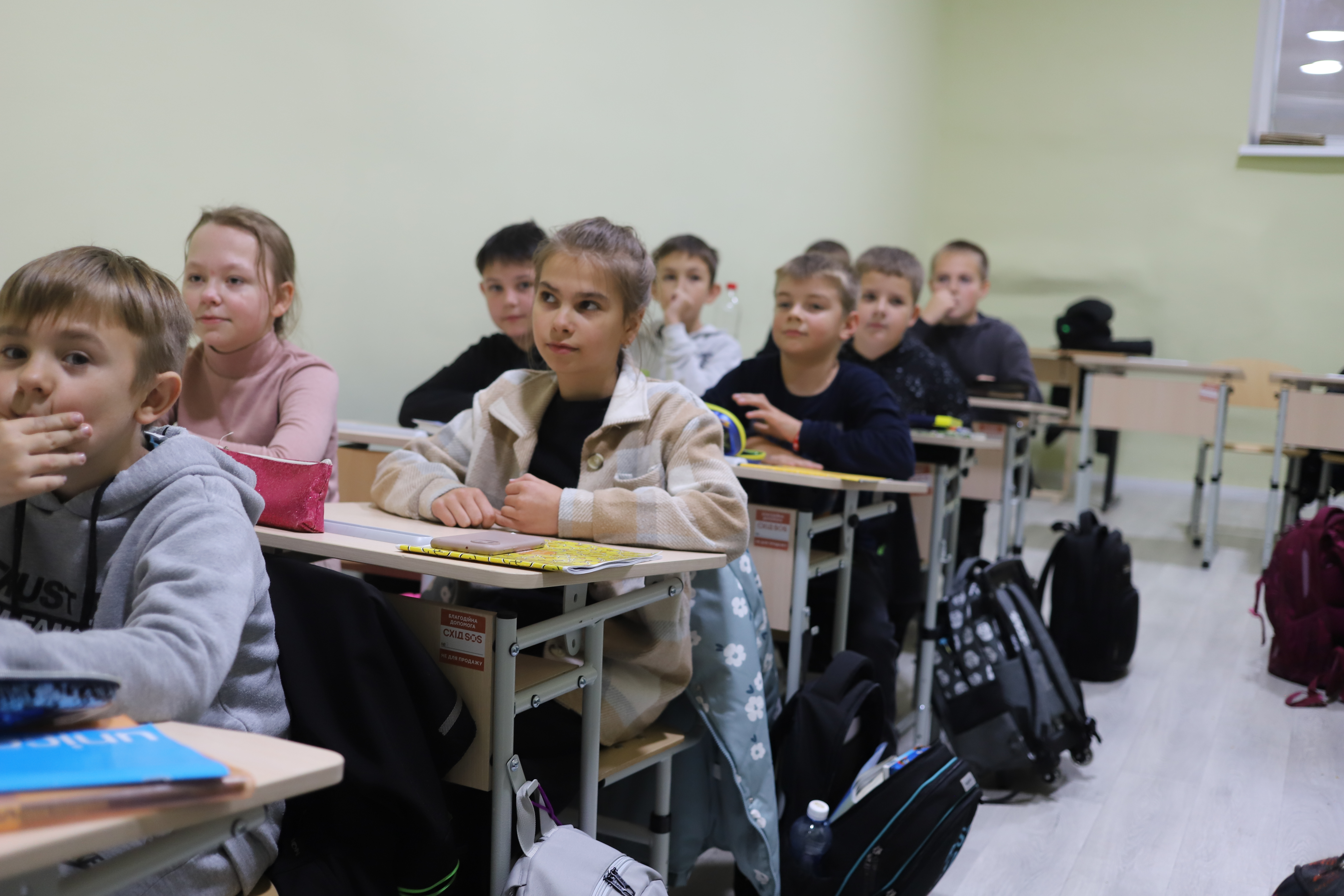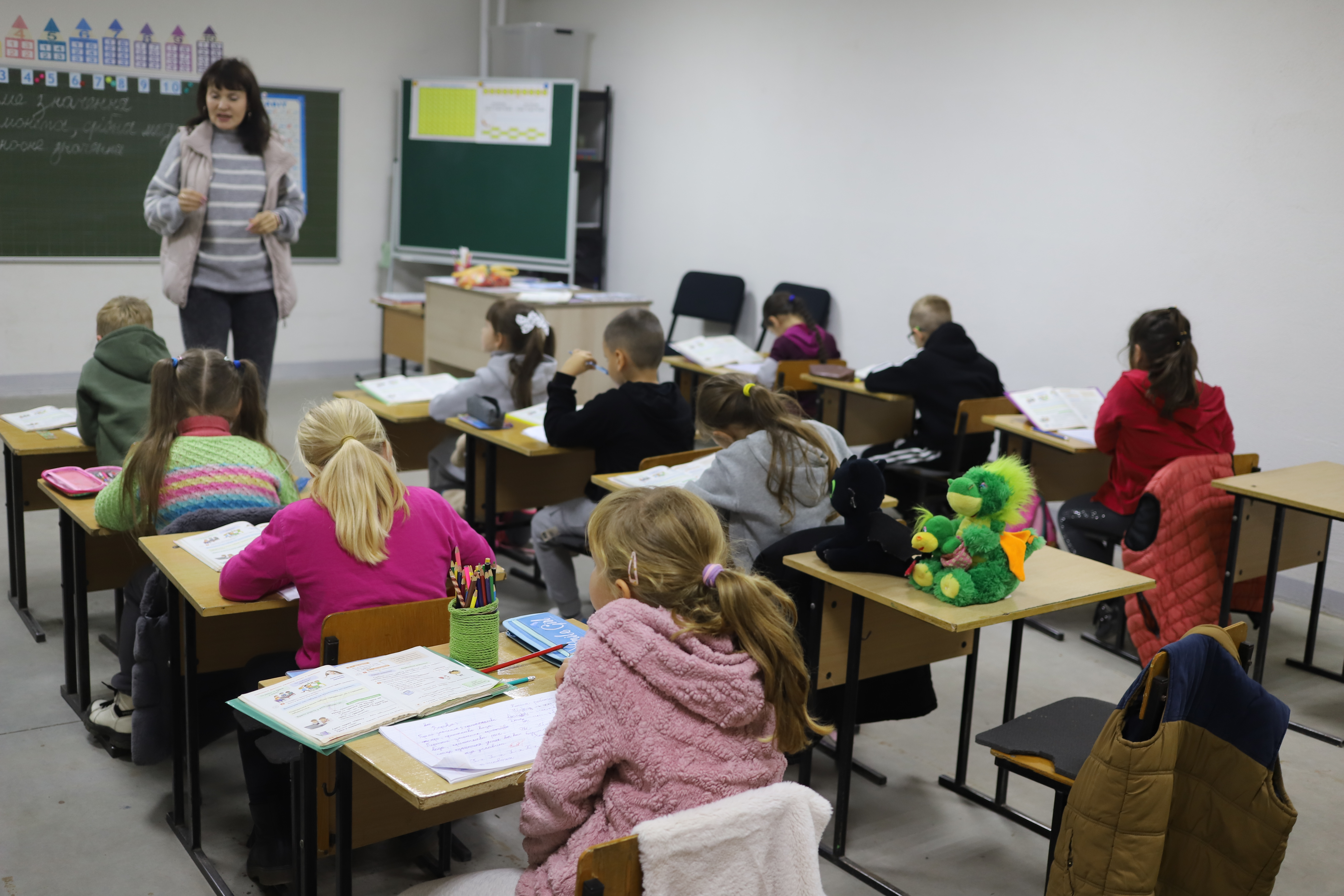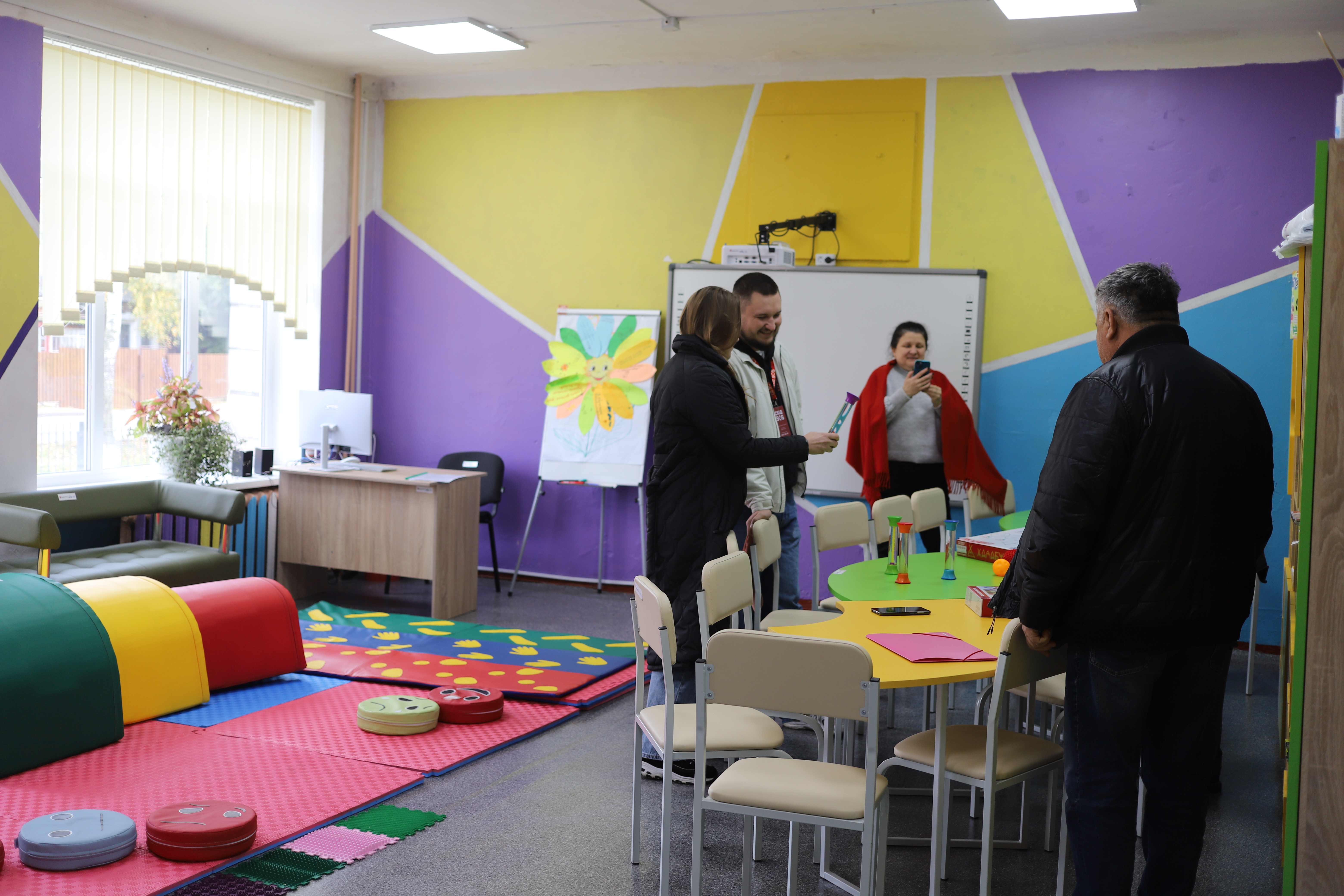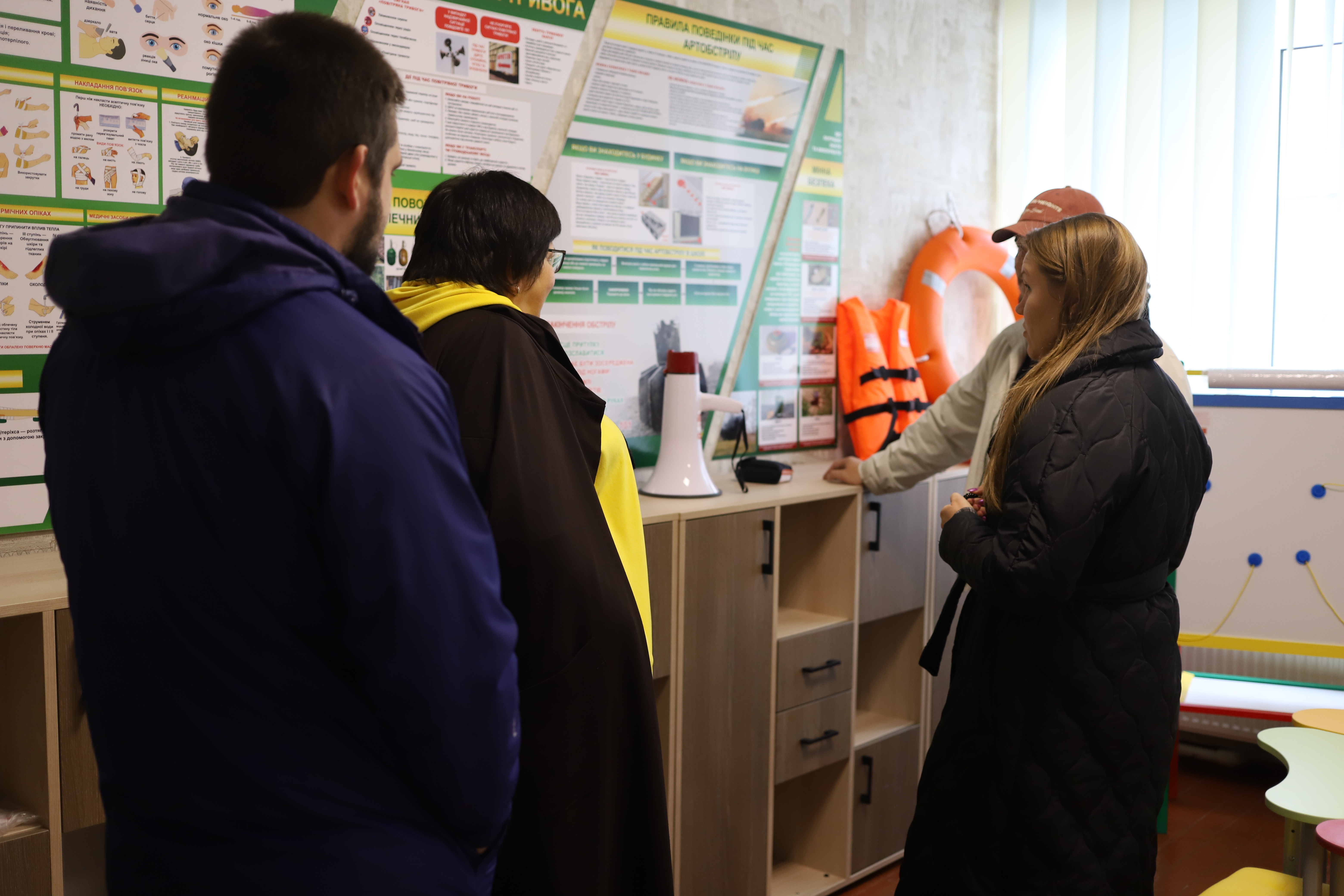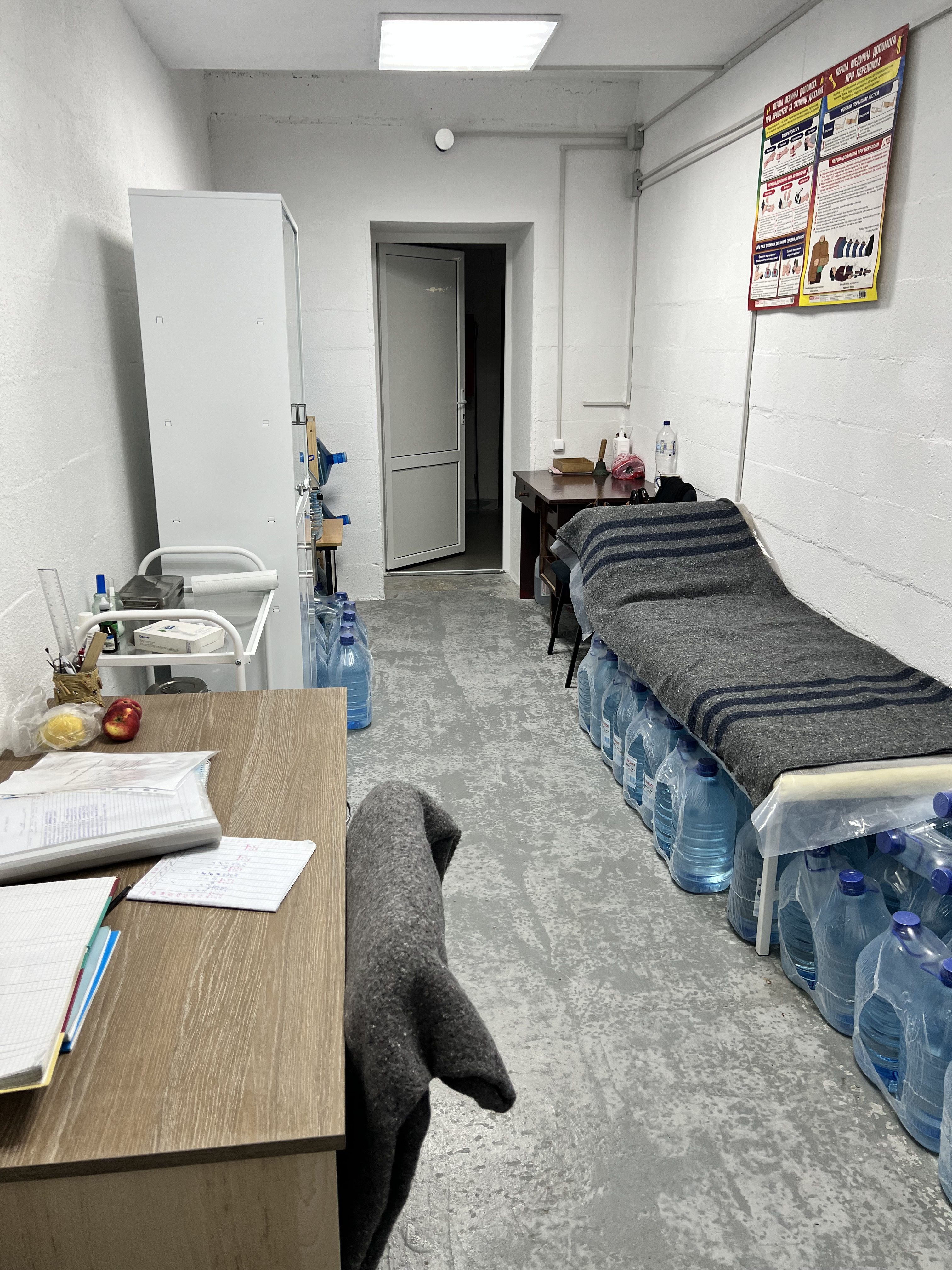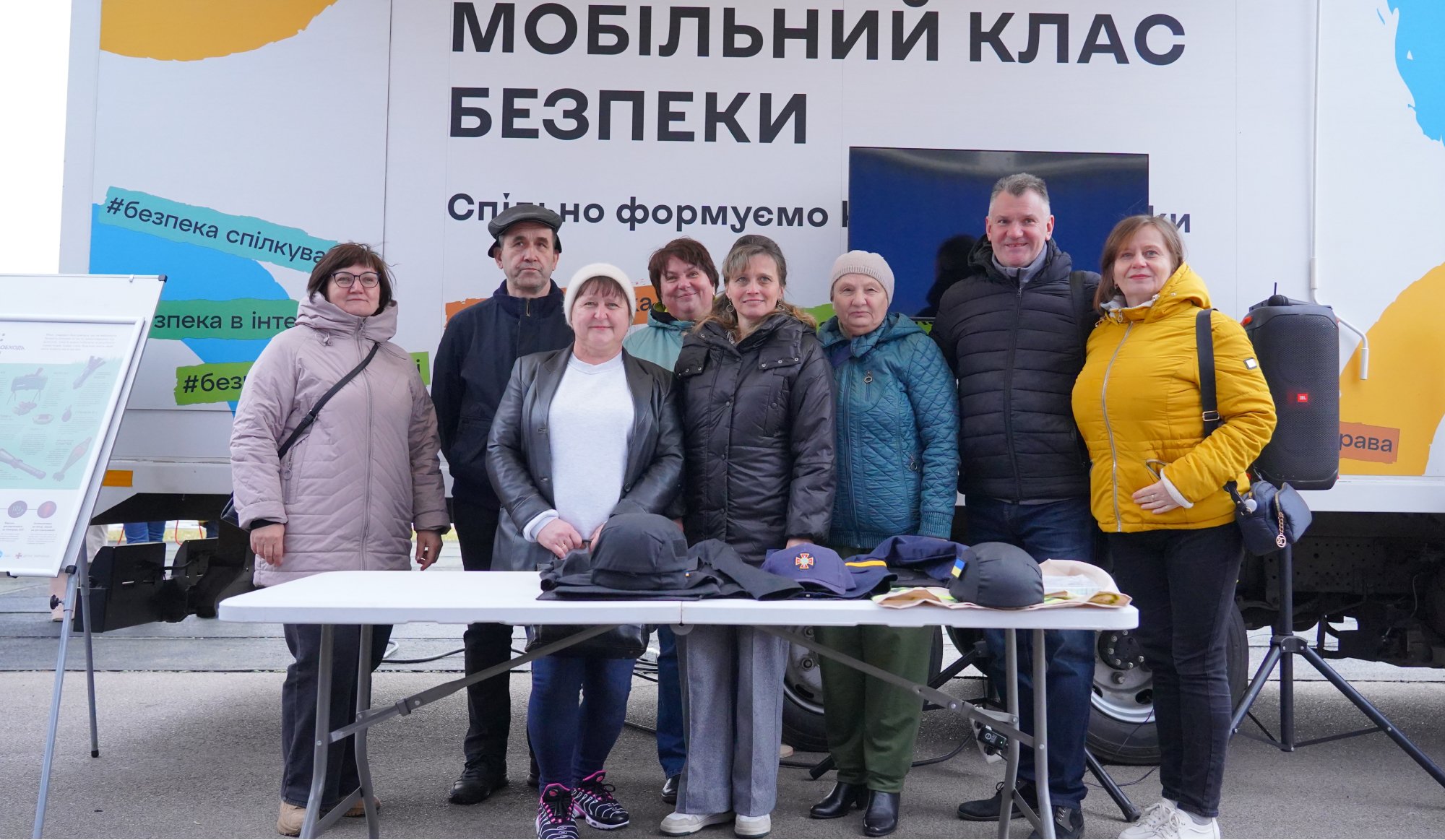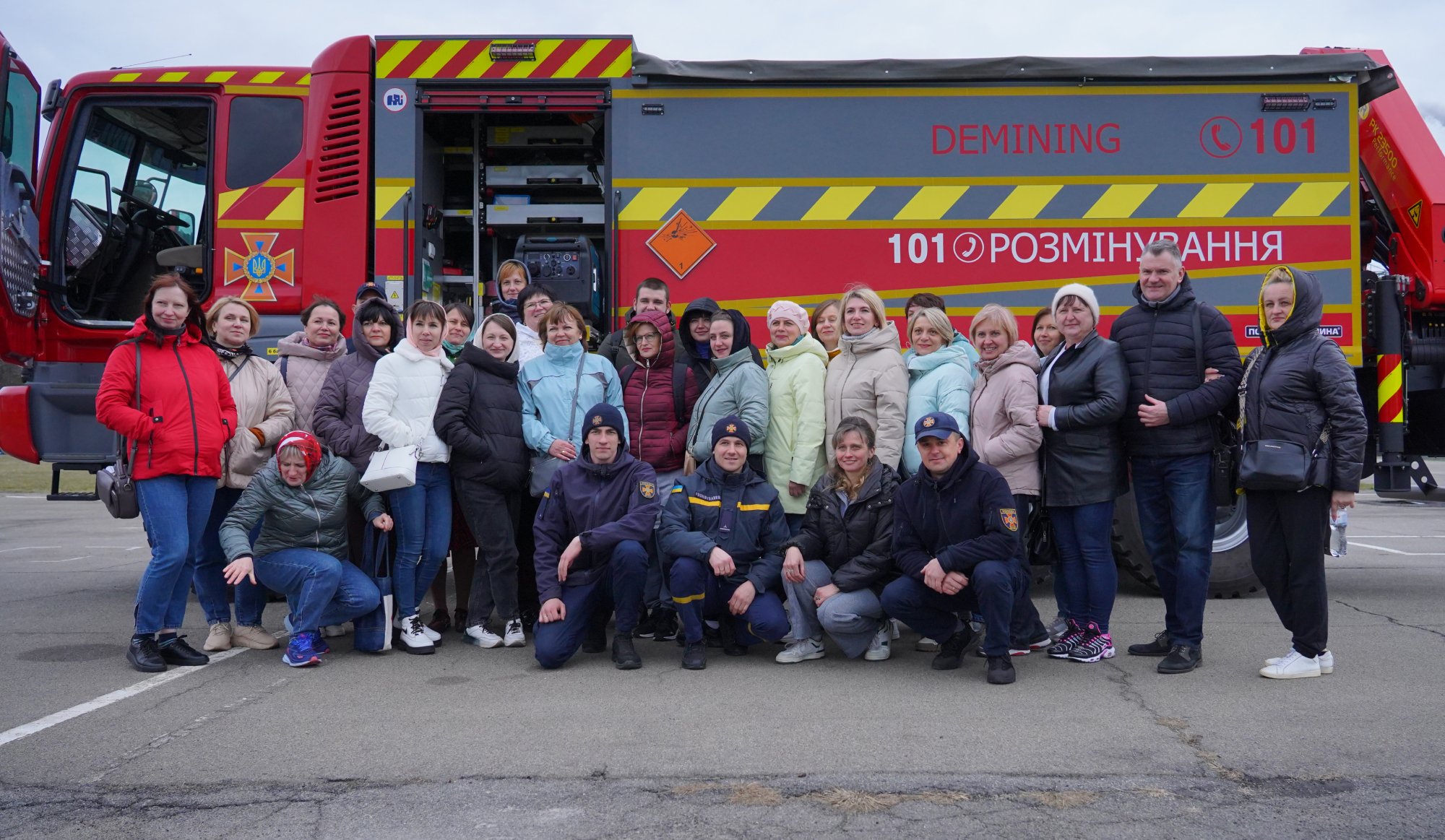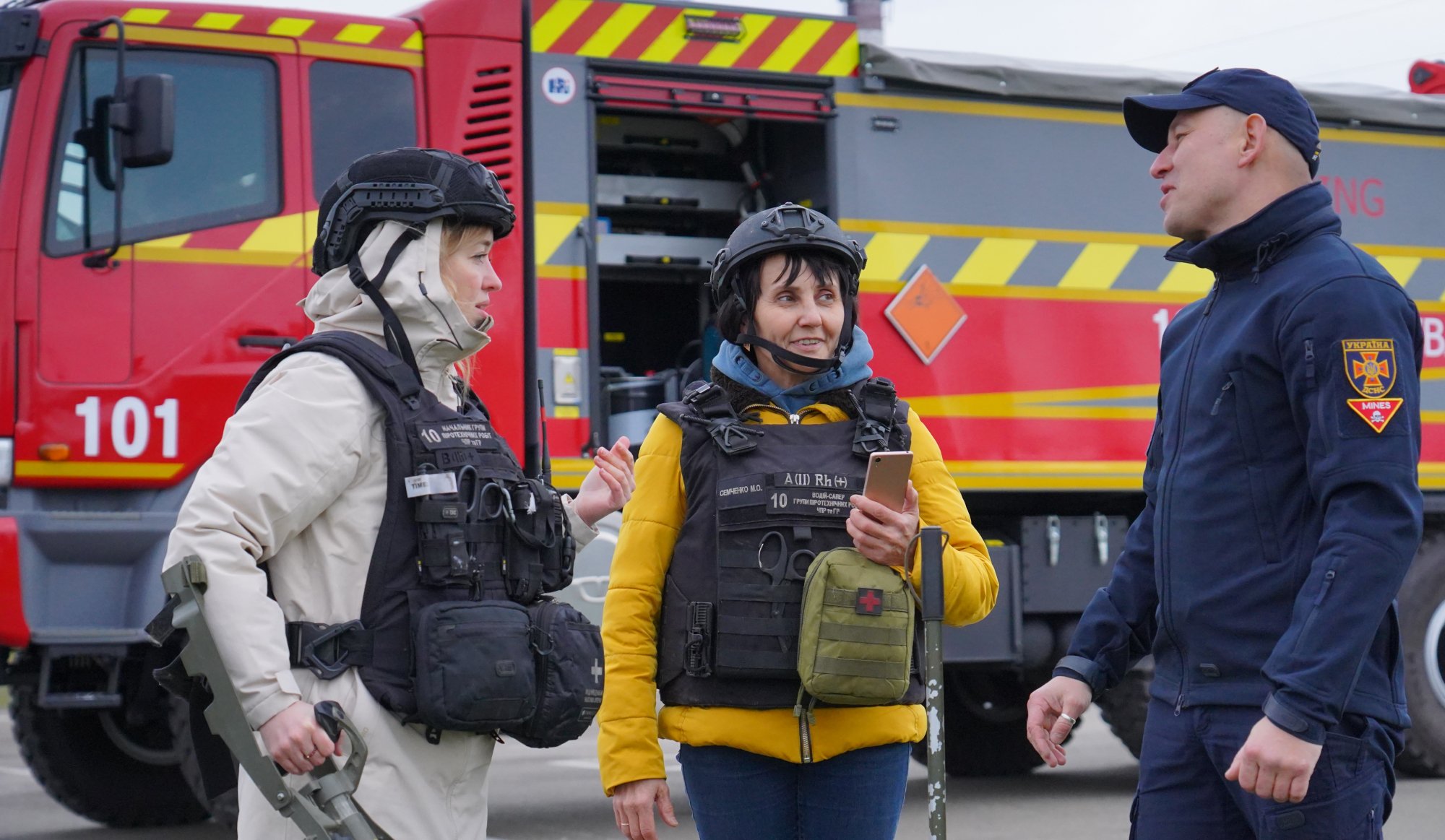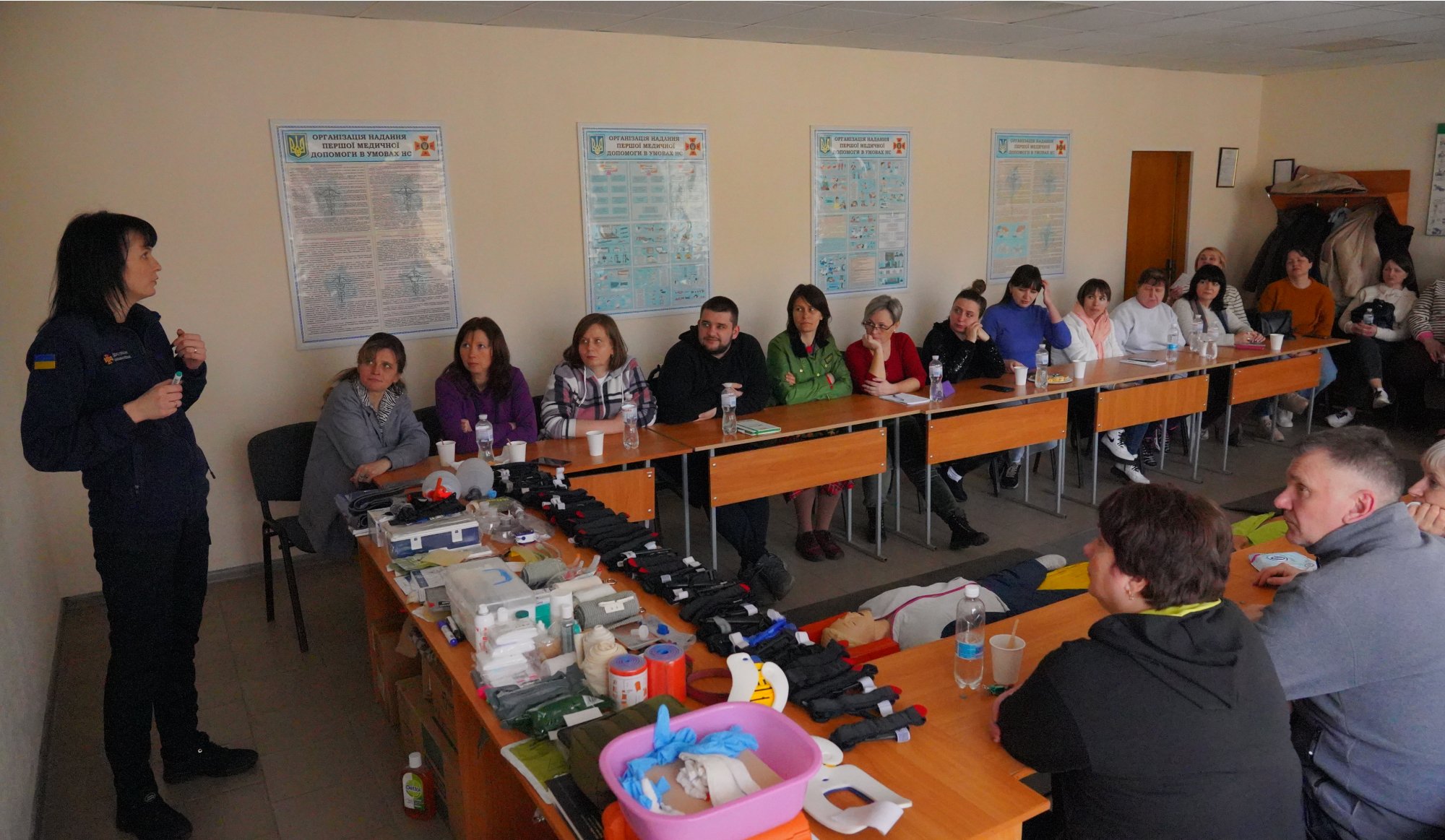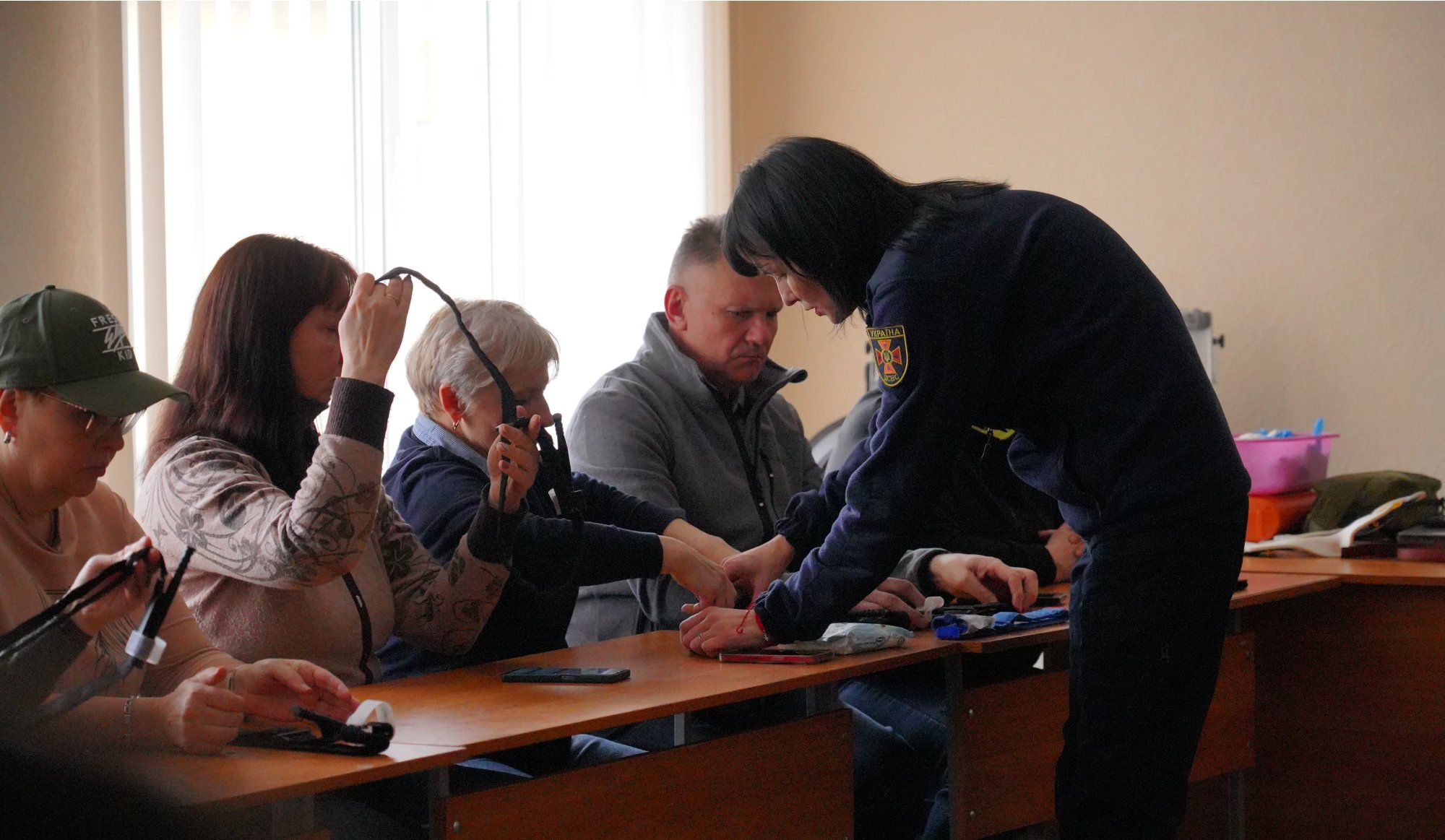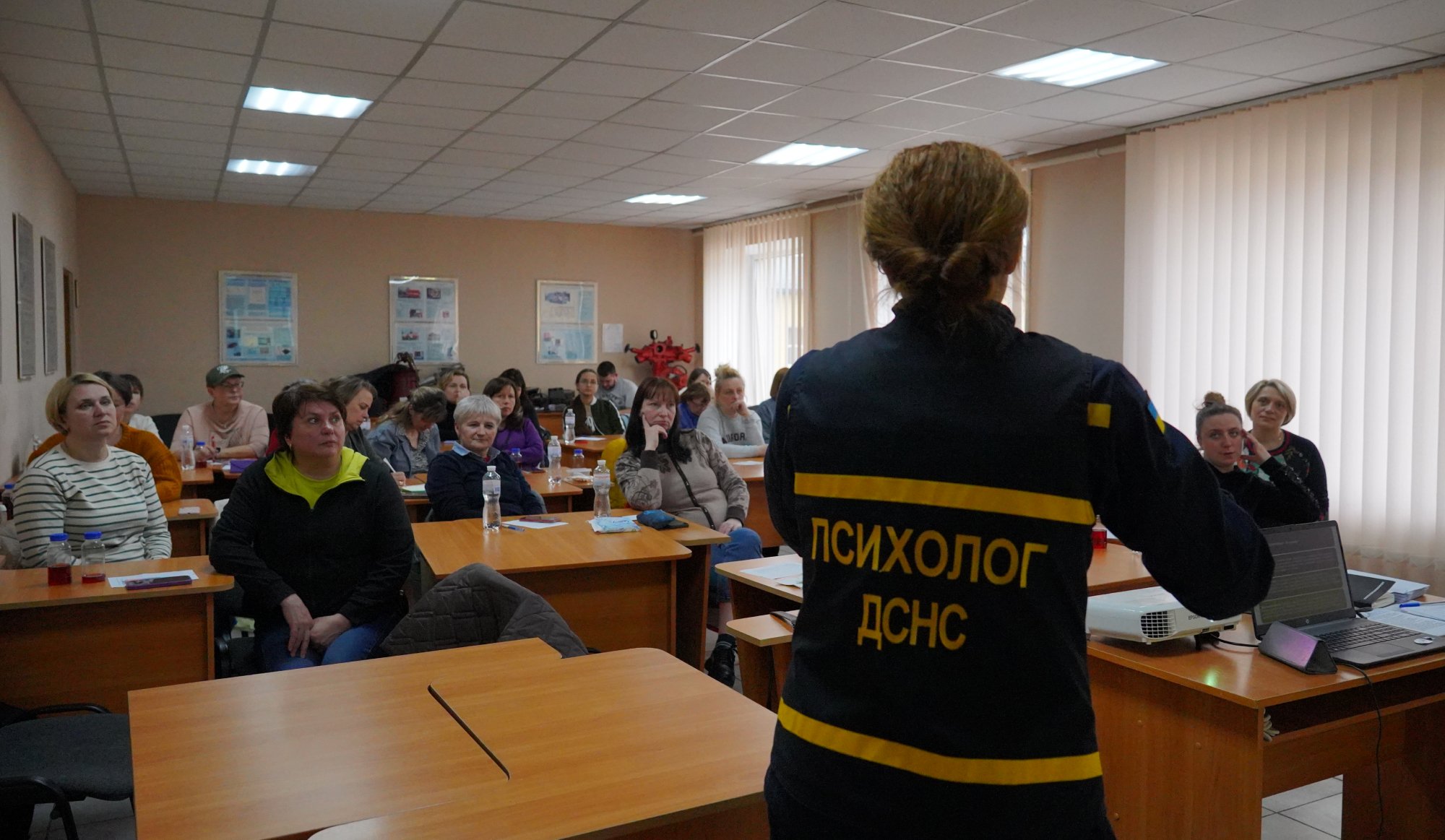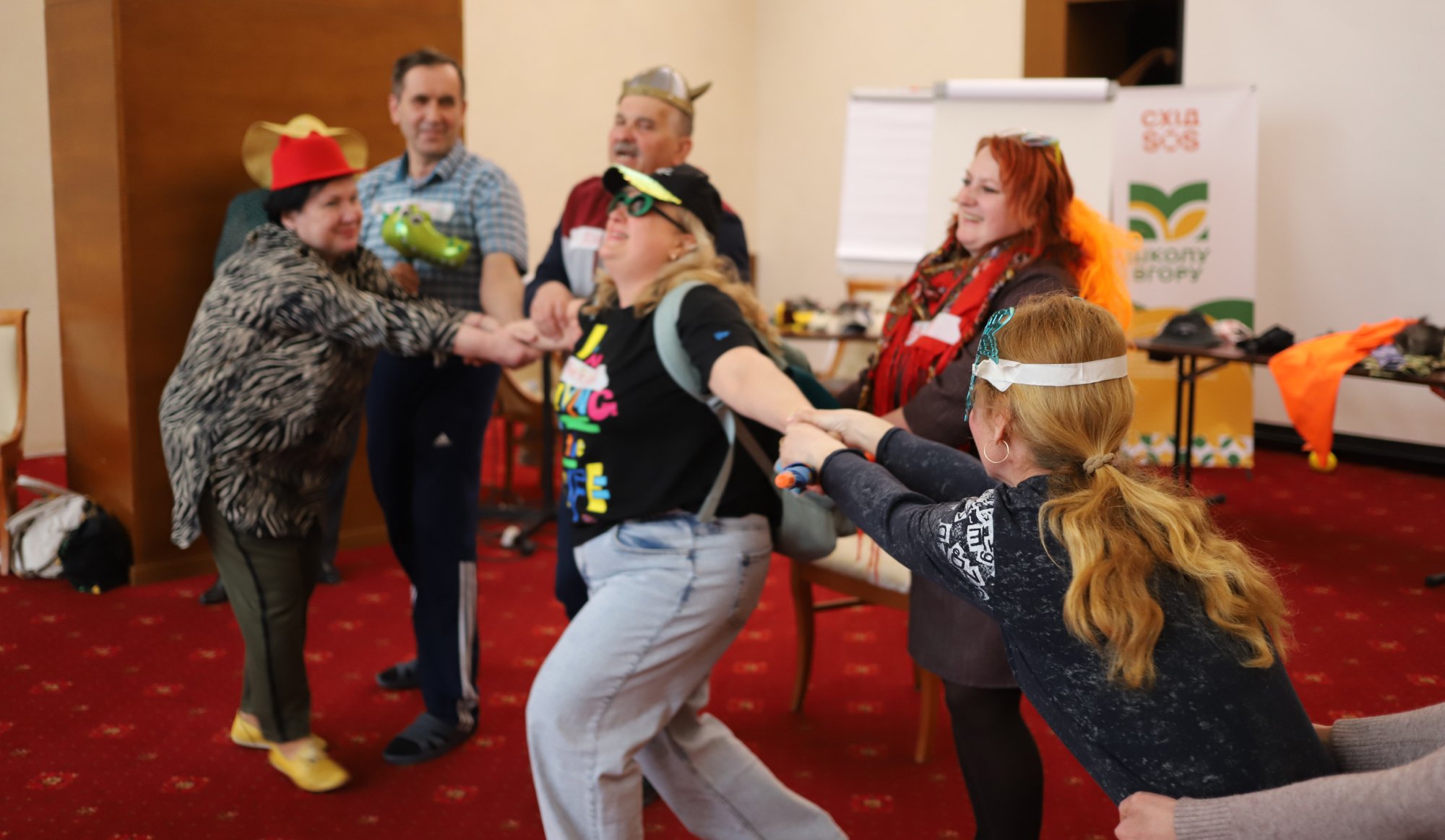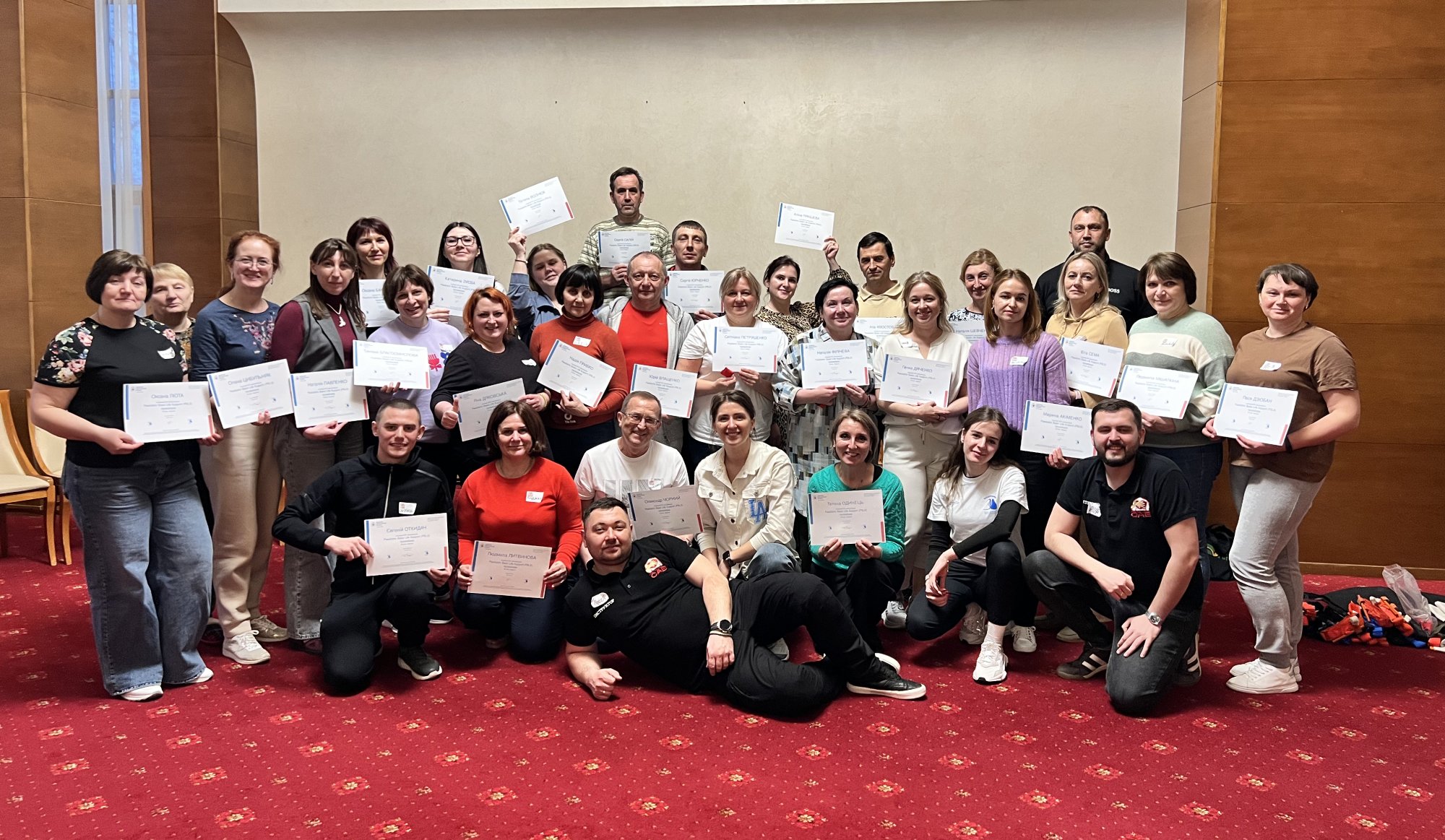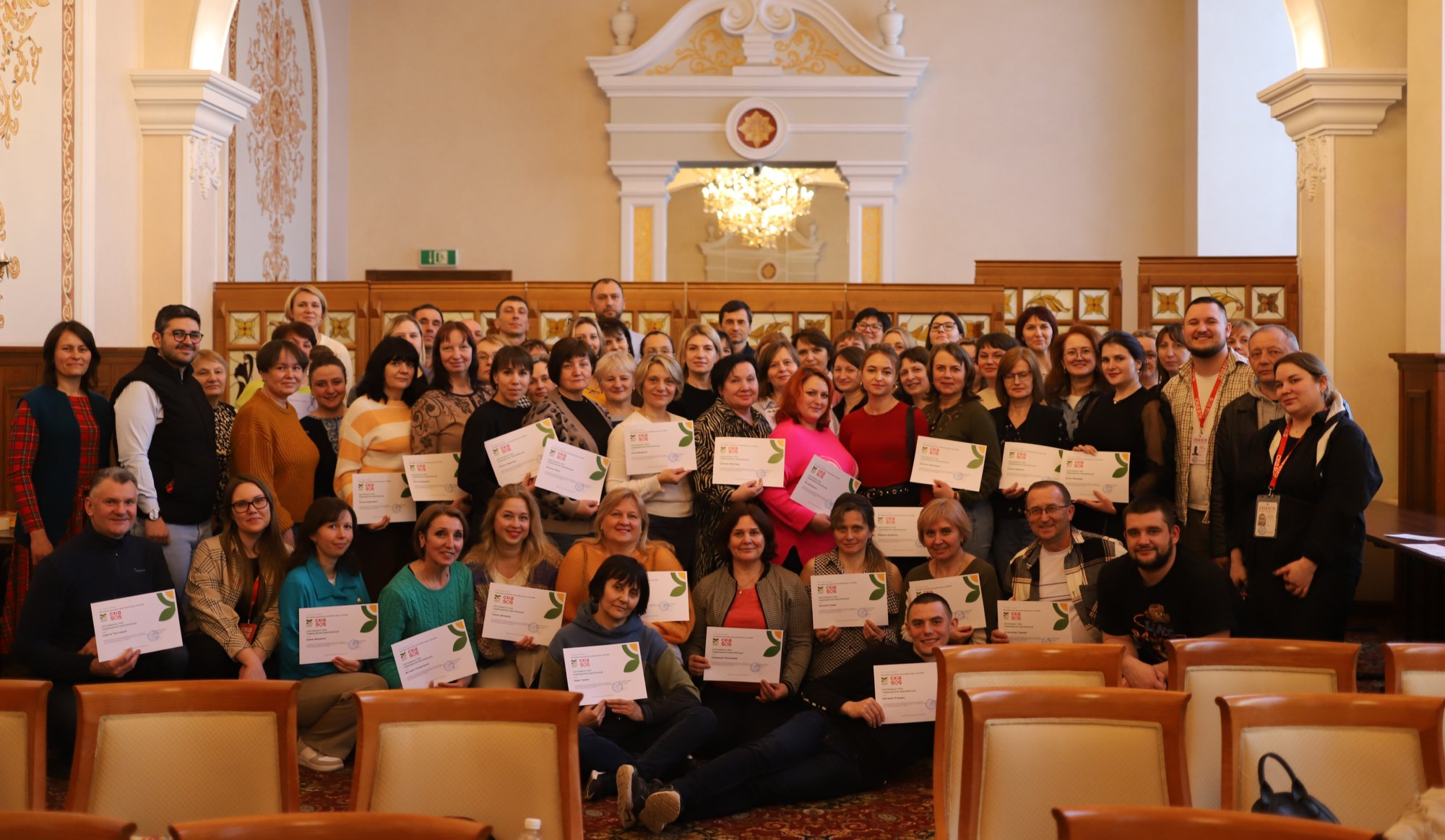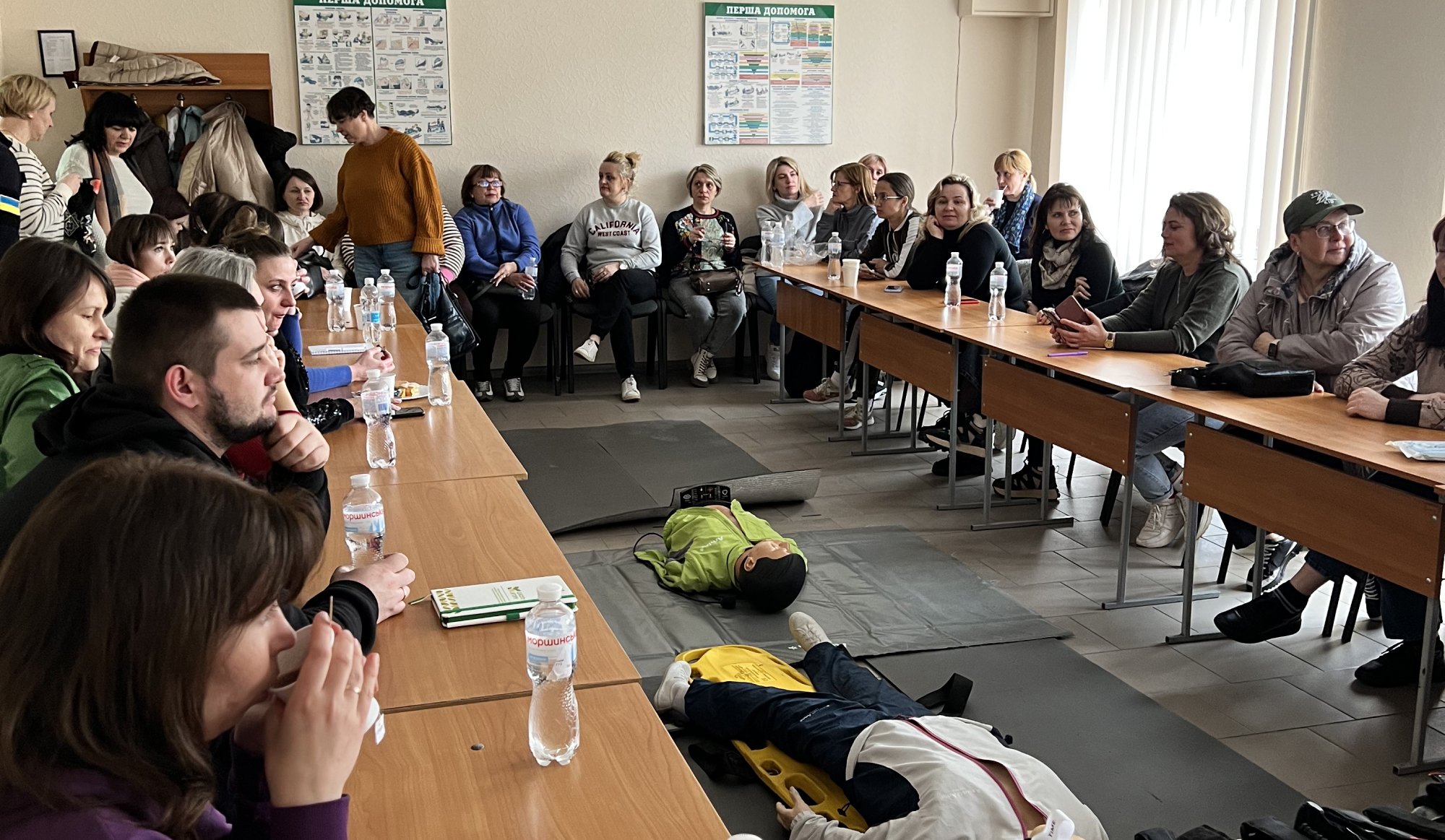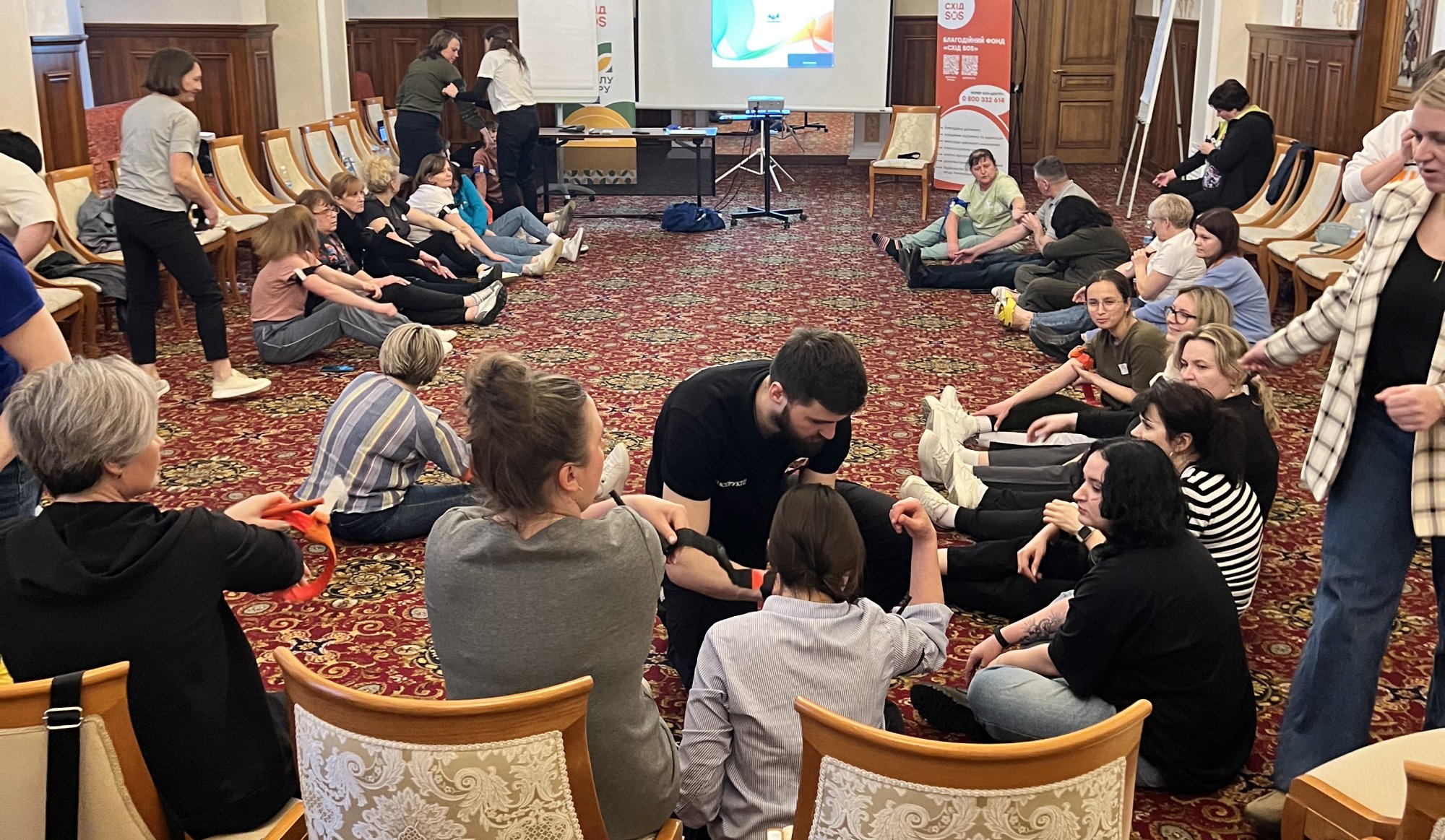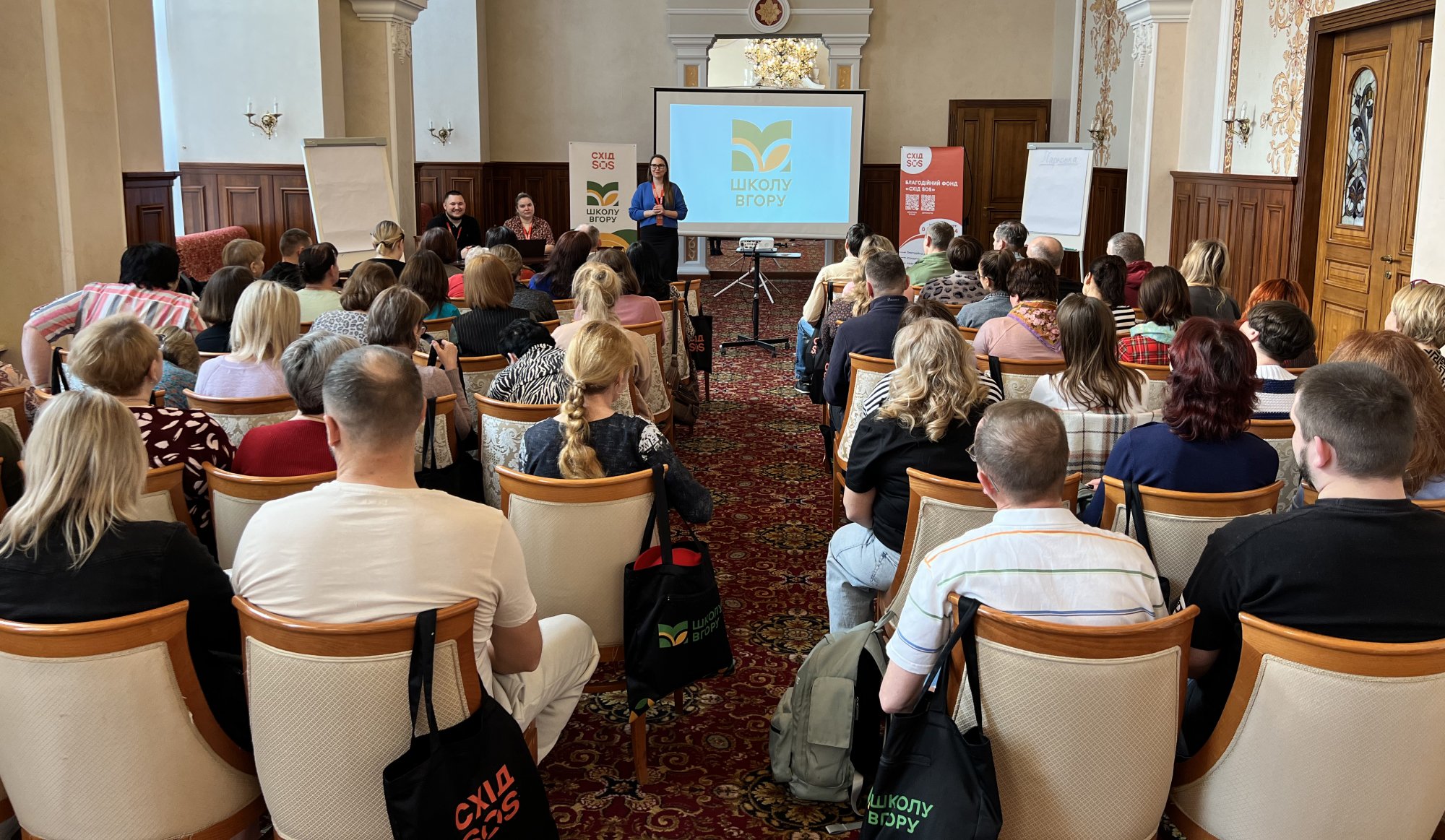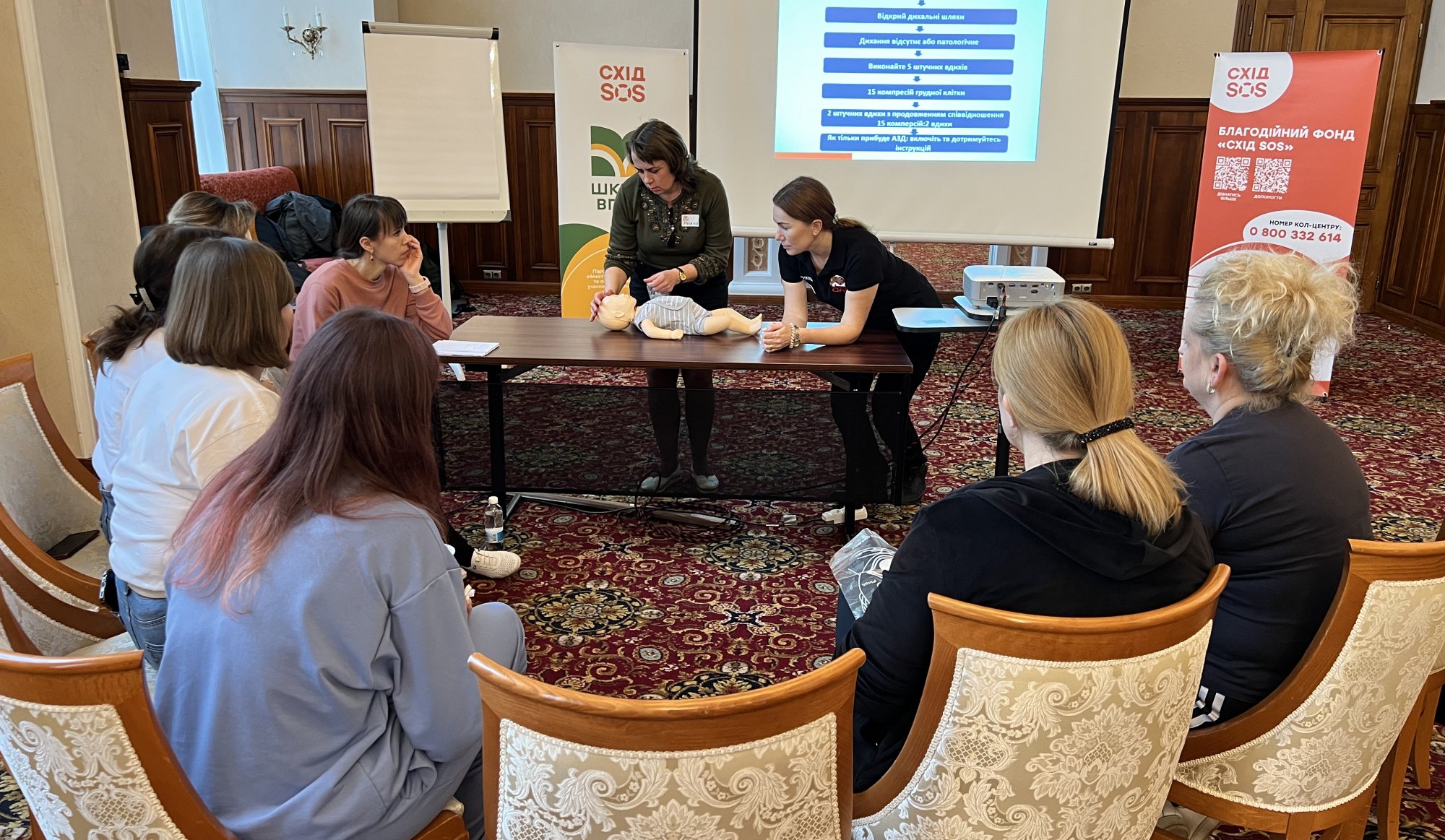Supporting Schools in the Sumy Region to Improve Student Safety and Psychological Well-Being/SCHOOL UP Project
The war in Ukraine has severely impacted access to quality education, particularly in border regions, including the Sumy region. Constant shelling, air raids, and power outages have forced schools to operate under extremely difficult conditions, while the lack of properly equipped shelters poses a serious threat to the safety of students, teachers, and staff. Prolonged stress, displacement, and social isolation have significantly affected the psycho-emotional well-being of children, many of whom are forced to leave their homes or study in an atmosphere of uncertainty and fear. In response to these challenges, schools and communities are actively seeking ways to create safe learning environments and maintain access to education even in wartime conditions.
The project aims to enhance safety and provide psychological support for all participants in the educational process at five lyceums in the Sumy region:
- conducting safety trainings for educators
- providing additional training for school psychologists
- equipping safety classes within the schools
- setting up psychological relief classrooms
- arranging and improving school shelters
- Needs assessment of schools – visits to general secondary education institutions participating in the project. This process includes: pre-monitoring – preliminary review and analysis of the conditions in which the educational process takes place and identification of urgent needs and problems faced by the administration, teachers, students, and their parents during the educational process; ongoing monitoring – monitoring of activities within the project, as well as activities related to the material and technical support of schools; final monitoring – analysis of the overall results of the project, development of recommendations for its improvement in the future.
- Security training – a four-day offline training course for educators and security officers from schools participating in the project, where they learned about:
• mine safety and emergency response procedures (in partnership with the Training Center of the State Emergency Service in Kyiv Region);
• the basics of first psychological aid;
• the basics of providing first aid;
• information and cybersecurity. - Webinars for teachers—online training courses to improve teachers’ understanding of the psychological and emotional state of children and adolescents in wartime. They also provide practical advice on communication and the use of psychological tools when working with schoolchildren of different age groups.
- Professional development for school psychologists – four online training sessions and several months of ongoing professional supervision by an experienced practicing psychologist. The training covers topics such as the psychological characteristics of children in wartime and methods of psychosocial interaction and assistance, suicidal behavior, post-traumatic stress disorder, support for families of prisoners and missing persons, etc.
- Provision of additional psychological counseling for pupils – school psychologists conduct additional stress relief and stabilization sessions with children, taking into account the base of created/improved psychological stress relief classes and knowledge gained during webinars and supervision meetings.
- Setting up shelters, “safe classrooms” and “rooms of psychological unloading” – creating safe learning spaces in schools. The needs of schools are determined individually during monitoring visits
Swiss Solidarity Funding
Participants: students, teachers, school administrators.
Involved Educational Institutions (Sumy Region):
- Konotop Lyceum No. 1
- Konotop Lyceum No. 7 named after Hryhorii Hulyanytskyi
- Konotop Lyceum No. 12
- Mykolaiv Lyceum
- Kosivshchyna Lyceum named after Lesia Ukrainka
January 1, 2025 – December 31, 2025
Sumy region
EUR 299 310
During this period, the Foundation’s team achieved the following results:
- Conducted three monitoring visits to general secondary education institutions in the Sumy region to identify urgent needs related to creating a safe and high-quality educational environment
- Organized a four-day safety training in Kyiv for 63 teachers, during which participants strengthened their skills in first aid and psychological support, information hygiene, and mine safety
- Engaged 387 teachers in a series of webinars focused on first aid and supporting children experiencing stress
- Provided advanced training and several months of supervisory support for five school psychologists, enabling them to implement modern approaches to mental health support in schools
- Ensured access to safer learning environments for 3,272 participants of the educational process from six educational institutions (Stories of resilience: here, and here)
- Equipped six shelters, six safety classrooms, and six psychological relief rooms in schools in Konotop, Vilshany, Mykolaivka, and the Kosivshchyna community
- Conducted group psycho-emotional relief sessions for schoolchildren, during which children learned to recognize their emotions and apply basic self-help techniques
Professional Development Program: Supporting Schools in the Sumy Region in Improving the Safety and Psychological Well-Being of Participants in the Educational Process
Program Authors:
- Anna Loza – Coordinator of the Educational Direction, East SOS
- Mykola Overchenko – Manager of the Educational Direction, East SOS
- Kateryna Tymchenko – Manager of the Educational Direction, East SOS
The program aims to enhance the safety, psychological resilience, and digital literacy of teachers by equipping them with practical skills and interactive learning tools.
Key Competencies Gained by Participants:
- Psycho-emotional relief techniques to reduce stress, prevent professional burnout, and develop emotional self-regulation
- First aid skills for responding to critical situations involving children (e.g., injuries, allergic reactions, respiratory distress)
- Emergency response training, including evacuation procedures, reaction to threats, and principles for creating a safe educational environment
- Cybersecurity and information hygiene practices: protecting personal data, recognizing cyber threats, and safely navigating digital platforms
- Forum-theater method application: simulating crisis scenarios, analyzing behavior, and developing effective responses to complex educational challenges
- Integration of information and communication technologies (ICT) into the educational process, effective use of e-learning tools, ensuring information and cyber security in the school environment
- Emotional and ethical competence
- Inclusive competence and safe learning environment
- Understanding the psychological and physiological development of students
- Digital competence
Full-time
Trainings
(Conducted under structured professional development programs)
- Teachers
- Deputy Headmasters of Educational Institutions
- Practical Psychologists
- Social Pedagogues
- Organizers of Educational Activities
- Methodologists
- Heads of Educational Institutions
General competencies:
GC.02 – Ability to engage in interpersonal interaction and work effectively in teams
GC.04 – Ability to make effective decisions in professional activities and demonstrate a responsible attitude toward duties, while motivating others to achieve shared goals
GC.05 – Ability to generate new ideas, identify and solve problems, and take initiative
GC.06 – Ability to reflect on, evaluate, and analyze one’s own pedagogical practice, and to identify directions for professional growth
GC.07 – Ability to learn throughout life and commit to continuous self-development
General Competencies of Teachers (Based on Professional Standard No. 1225, dated 29.08.2024)
A3.1 – Ability to navigate the information space, search for and critically evaluate information
A3.1.У2 – Critically evaluate the accuracy and reliability of information sources, and understand the impact of information on students’ consciousness, development, and decision-making
A3.1.У4 – Avoid dangers in the information space and ensure the protection of personal data
A3.3 – Confident use of digital technologies in the educational process
Б1.1 – Ability to consider the age-related and individual characteristics of students, including their psycho-emotional state
Б1.1.В1 – Monitor changes in these characteristics and make appropriate adjustments to the educational process
Б1.2 – Ability to apply strategies that support students’ self-esteem and emotional well-being
Б1.3 – Ability to foster motivation to learn and support students’ psychological state
Б1.3.У2 – Create conditions that facilitate
the development of students’ intrinsic motivation to learn
Б2.1 – Ability to recognize and manage one’s own emotional states
В1.1 – Ability to create and maintain a safe educational environment
В1.2 – Ability to provide pedagogical support to children in stressful situations
The training program lasts 4 days, with a total duration of 40 hours, including 32 hours of in-person intensive training (4 full days, 8 hours each) and 8 hours of independent work (review of materials, completion of practical tasks, preparation for skills assessment)
The program includes theoretical sessions, practical and interactive exercises, simulation of crisis situations using forum theater methods, reflective analysis of acquired knowledge and skills.
Total training volume: 30 academic hours
ECTS equivalency: 1 credit
The full training schedule can be viewed here
Upon completing the training, participants will:
Gain comprehensive knowledge and practical skills to enhance safety, psychological resilience, and digital literacy within the educational environment
Learn to assess their own stress levels and identify early signs of professional burnout
Acquire and apply effective strategies for burnout prevention and emotional self-regulation
Participants will be able to apply a range of emotional self-regulation techniques, helping them maintain inner balance even in crisis situations. Practical stress-resilience exercises will enhance their ability to engage effectively with students, colleagues, and parents—contributing to a positive psychological climate in the school.
They will also gain first aid skills for responding to critical incidents involving children, such as injuries, bleeding, allergic reactions, and respiratory arrest. Participants will learn to:
Assess the victim’s condition
Call emergency services appropriately
Apply basic resuscitation measures while awaiting professional medical assistance
In addition, participants will master clear algorithms of action in emergency situations, including:
Proper evacuation procedures
Organization of a safe educational environment
Effective coordination with rescue services
Participants will also develop digital security skills, including the ability to:
Recognize information threats
Critically evaluate the reliability of digital sources
Protect personal data
Apply principles of digital hygiene within the educational process
Through forum-theater sessions, participants will engage with real-life crisis scenarios, enabling them to:
Analyze behavioral responses
Explore and practice effective communication and coordination strategies
Strengthen their ability to act in stressful or emergency conditions
As a result of the training, participants will experience:
Increased professional confidence
Greater preparedness to manage non-standard situations in the school setting
Enhanced capacity to create and maintain a safe, supportive educational environment for all members of the school community
“We looked at ways to manage stress and learned about the window of tolerance. We studied the algorithm of actions in case of an acute stress reaction in a child: what to say, how to act, and what not to do. We devoted time to the topic of loss—we learned to recognize grief and choose supportive words. We talked not only about psychology, but also about empathy, attention, and presence. This is practical knowledge that teachers will use right now,” shared project trainer Anna Lenchovska.
“We discuss practical situations, including the topic of undefined loss, when a child experiences grief and does not understand how to act. Analysis helps to develop support strategies when there are no clear answers, but there is a need for understanding,” says Alina Lyakishcheva, a psychologist at Konotop Lyceum No. 1.
“It was my first time learning how to apply a tourniquet, as I used to show students how to work with an Esmarch bandage. I also saw and practiced using an automated external defibrillator (AED), which we didn’t have in our town before. And what’s important is that a whole batch of defibrillators was recently delivered to Konotop — and now I know how to use one if needed,” said Oksana Mykhtunenko, a chemistry teacher at Konotop Lyceum No. 7.

During the spring and summer of 2025, school psychologists from Konotop, Mykolaivka, and Kosivshchyna received mentoring and supervisory support from psychologist Kateryna Holzberg. Together, they developed a special program for psycho-emotional relief for students living in frontline settlements and facing the daily consequences of war. Based on this large-scale training and requests from teachers, the East SOS Charity Foundation has now presented a practical guide for educators, “Self-Regulation and First Aid: Tips for Teachers.” The guide is now available for download:
Donors

